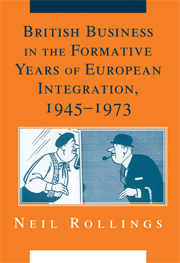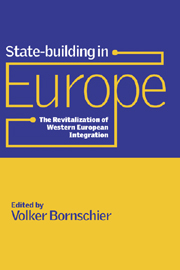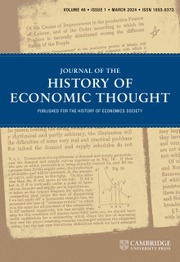British Business in the Formative Years of European Integration, 1945–1973
This book questions conventional accounts of the history of European integration and British business. Integration accounts conventionally focus on the nation-state, while Neil Rollings focuses on business and its role in the development of European integration, which business historians have overlooked to this point. Business provided a key link between economic integration, political integration, and the process of Europeanization. British businessmen perceived early on that European integration meant much more than the removal of tariffs and access to new markets. Indeed, British entry into the European community would alter the whole landscape of the European working environment. Consideration of European integration was revealed as a complex, relative, and dynamic issue, covering many issues such as competition policy, taxation, and company law. Based on extensive archival research, this book uses the case of business to emphasize the need to blend national histories with the history of European integration.
- Novel business perspective on European integration
- Extensive use of previously untapped archival literature
- Shows the impact of Europeanization on British business from an early date
Reviews & endorsements
"This book is a welcome addition to the ever-expanding literature on European integration." -Francesca Carnevali, American Historical Review
"...an extremely useful book." -Harm G. Schröter, Business History Review
Product details
December 2007Hardback
9780521888110
294 pages
235 × 160 × 19 mm
0.54kg
Temporarily unavailable - available from TBC
Table of Contents
- 1. Introduction
- 2. Trade and protection
- 3. Overseas investment, corporate strategy, and European integration
- 4. From 1945 to June 1955: the Marshall Plan and the European coal and steel community
- 5. The establishment of the common market and the Free Trade Area proposals, 1955–58
- 6. Creating EFTA, applying to the EC and de Gaulle's veto, 1958–63
- 7. After de Gaulle's veto, the second application and eventual entry, 1963–68
- 8. The end game: from the Hague summit to British accession, 1969–73
- 9. Competition policy
- 10. Indirect taxation
- 11. Company law and the European company.










.jpg)